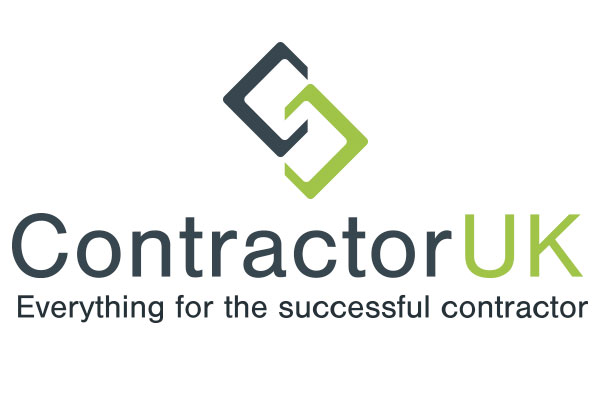A lot is suddenly being said against IR35 boilerplate contracts in wake of Dave Clark of Little Piece of Paradise Ltd, and formerly of Sky Sports, losing to HMRC. And perhaps rightly so. While the judgment against Mr Clark does not explicitly refer to boilerplate contracts, the clues are there, writes former tax inspector Kate Cottrell of off-payroll specialists Bauer & Cottrell.
Boilerplate hallmarks in Little Piece of Paradise
At point 10 of the judgement, the FTT talks of “Mr Clark’s services to Sky [being] governed by the relevant ‘Services Agreement’ in force at a particular time”.
Well, ‘in force at the particular time’ suggests the darts presenter was on a Sky document which the broadcaster issues as standard. Similarly, at 12 (2), there is the indication that his contract was also a contract that covered all sorts of personnel at Sky, not just presenters. It says:
Each consecutive 12 month period commencing 1st August each year.’ Services – ‘The Company shall provide the services of the Personnel as a commentator, presenter, interviewer, guest, or other participant in the making of any editorial, programme or video whether in vision or audio and whether in a studio or on location, live or recorded during the Assignment.
And should you need more evidence that a ‘cut and paste’ job was likely in play between LPPL and Sky, see the footnote on page 3 of FTT judge Heidi Poon’s verdict. This indicates that it is Sky’s standard terms which governed Mr Clark’s engagement, other than the change of name and the odd addition.
A personal struggle, made more unbearable by HMRC
But personally, if not contractually, it’s hard not to feel sorry for the broadcasting professional, who spent 22 years at Sky, and almost 10 of those years in his ongoing battle against Parkinson’s disease.
It’s a struggle unfortunately made more difficult by HMRC. In fact, in LPPL, we once again have an IR35 case that has gone on for many, many years. The stress of the situation lasting for so long is more than enough for anyone to bear but add to this Mr Clark’s debilitating illness, this whole issue must have been unbearable.
In particular, HMRC opened the case in 2014, but then failed to apply any sense of urgency to resolve it, or take into account Mr Clark’s illness (which by its nature just gets progressively worse). This neglecting to try to achieve a speedy resolution because of the individual customer’s circumstances, is something most organisations of all sizes would do – and should be expected to do.
However, there can be less sympathy for Mr Clark’s contractual position. Consider — a good IR35 contract review, which includes a review of the working practices, often comes back as showing a contract that bears no resemblance to the reality of the working practices. So an opportunity to renegotiate terms to ensure the agreement reflects reality then emerges.
The Bringing to the Light exercise
Advisers like me often emphasise (a lot) the need for human interaction with all IR35 and Off-payroll contract reviews. But here’s the thing — by speaking to the contractor and asking the right questions, aspects are often brought to light that must be spelt out in the contractual terms. This ‘bringing to the light’ exercise often includes many other issues not linked to status, such as payment terms and incorrect indemnities, among other areas. All these points are especially true of agency contracts, where they tend to have templates with a ‘one-size fits-all’ approach.
Yet contractors should take note: a well-respected (human) contract reviewer often has a direct contact in the agency’s legal team — even at the largest of agencies, where that contact person will happily consider sensible changes. Conversely, the HR and legal teams are often irritated by endless lists of changes churned out by status tools. These automated ‘solutions’ often only look at the contract, and bear no relation to the reality of the working practices.
Agency inertia
It’s important to acknowledge that some agencies will not change anything in the contract – even those sensible revisions. But agency inertia does not mean it is an IR35-fail if you – the contractor — have enough information to show an outside IR35 position, and would be prepared to defend that position if HMRC investigates.
Remember, a good human contract reviewer probes all the issues that HMRC would probe in an IR35 investigation. Of course, judges have the benefit of seeing both sides of the evidence. But again, a good IR35 contract reviewer would, if necessary, gather the views of the client too, so a ‘client confirmation’ of the true terms is extremely valuable. Get one in place if you haven’t already.
Final considerations (includes when you’re pre-contract)
In short, a proper IR35 review conducted by a living breathing human should look at the contract, look at the reality of the working practices and above all, talk it all through with the contractor.
Top tip – if the contract has not yet started, IR35 contract reviewers worth their salt should arrange a call at a few weeks in — before giving their IR35 status opinion. Furthermore, tools can assist here but they are no substitute (forgive the pun!), for the human touch. After all, HMRC always chooses to have in-person meetings, and prefers to have in-person meetings, as their chosen method for investigations. It’s the same with the FTT and all court judges – the in-person approach is the priority. So even the biggest proponents of technology need to recognise that algorithms can’t outdo a properly qualified and experienced status professional — the almost endless subtilties that IR35 hinges on are just too numerous for a blunt tool to compute.
Credit: Source link










